With aging comes great wisdom, experience, and insight. Unfortunately, it also increases the risk of developing serious oral health issues. As a result of these changes, many adults must reevaluate their current lifestyle to accommodate changes in teeth, gums, and bones. These changes also affect caregivers, who are now more likely than ever to be a family member. In the United States alone, nearly 20 million adults provide care for at least one adults over the age of 75. Dr. Corbet Locke, a general dentist in Waco TX, offers tips on minimizing the impacts of aging on older adults’ oral health.
Some aspects of older adults’ hygiene regimen will remain the same. Unless directed otherwise, seniors should continue to brush at least twice daily and floss once daily. However, further changes may be necessary for adults who take certain medications or have been diagnosed with medical conditions. Failure to follow the recommended guidelines will almost inevitably result in tooth loss and the need for full or partial dentures.
Coping With Changes in Dexterity
A significant portion of the elderly population faces limited mobility and loss of dexterity in their hands and fingers. Grasping and manipulating a toothbrush and dental floss proves difficult, which makes cleaning between teeth and in the back of the mouth nearly impossible. Dr. Locke can recommend methods of adapting or replacing hygiene tools to become more manageable for elderly patients. Disposable products work well, too. As always, regular dental visits offer the advantage of early detection for gum disease, infections, and oral cancer.
Dry Mouth Affects Hygiene
Saliva works as a natural cleanser for teeth and gums, washing away bits of food and bacteria before plaque forms. Factors contributing to dry mouth in seniors include:
-
Taking certain medications for blood pressure, diabetes, or heart health
-
Smoking or chewing tobacco
-
Dehydration caused by not drinking enough water
-
Consuming large amounts of caffeine
Although using regular mouthwash will combat bad breath and tooth decay, Dr. Locke recommends using mouth rinses that are specially formulated to help with dry mouth. He may also advise using a special toothpaste or spray.
How Can Caregivers Help Seniors With Oral Health Issues?
Seniors, especially those who struggle with dementia, may not remember to follow through with their oral hygiene regimen. Patients with advanced dementia sometimes forget to eat and drink throughout the day, which can result in halitosis, discomfort, and gum irritation. Ensure that seniors’ medicine cabinet and cupboards are fully stocked with healthy foods and oral hygiene products. Fresh fruits and vegetables provide invaluable vitamins and nutrients while combating the effects of dry mouth. Prepare foods in advance, as dexterity issues make peeling, slicing, and shopping foods difficult, if not dangerous.
Questions about caring for seniors’ oral health needs? Contact our Waco TX dentist office at 254-776-4888 to schedule an appointment or request information about our services. You can also find us on Facebook, where we provide updates and interesting news in the field of dentistry. We serve patients living in Hewitt, McGregor, Woodway, and surrounding communities.

